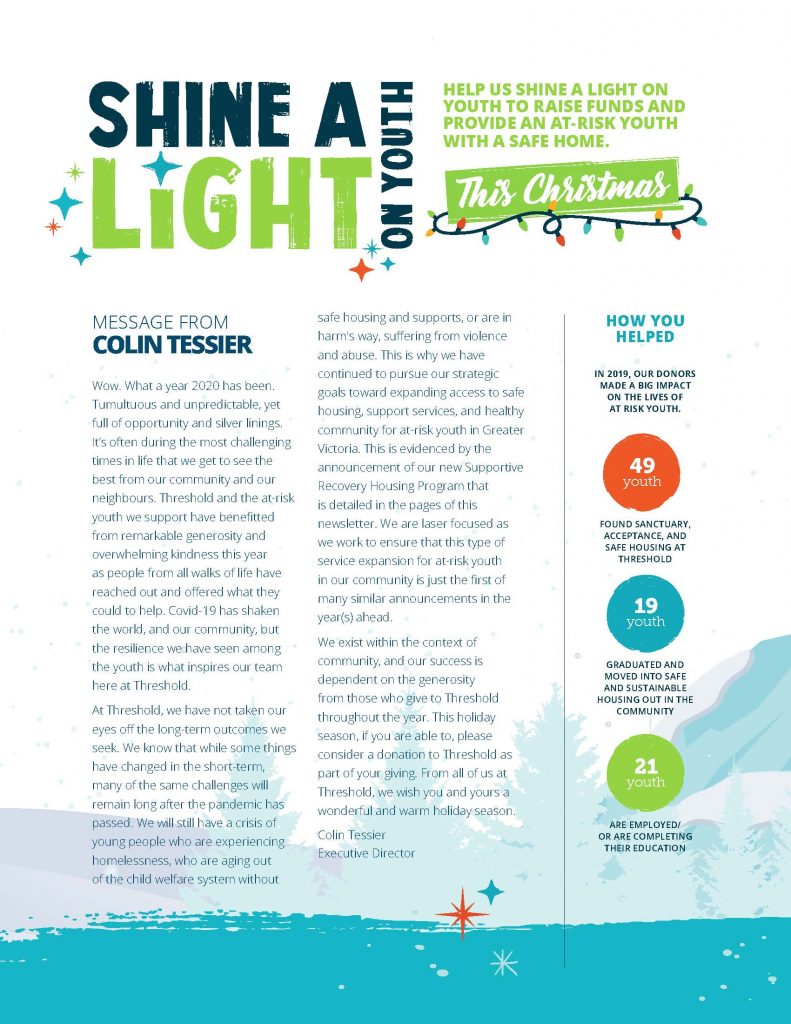We sat down with Sylvia Parke to learn more about her and her new position in the Supportive Recovery Program.
What is your name and role at Threshold Housing:
My name is Sylvia and I am the Cultural Wellness Worker in the Supportive Recovery Program at Threshold Housing.
My English name is Sylvia, my Haida name is ‘7stil aa yaa’ which translates into ‘always doing something.’ I am from the Haida nation on my Mother’s side, from the Saangaalth Stas’stas Eagle clan of Old Massett Village, Haida Gwaii. My Naanii (granmother) was Sylvia Storry (Kelly), oldest daughter of Godfrey and Victoria Kelly (Edenshaw). I am a grateful visitor on the unceded territory of the Lkwungen and Wsanec speaking people.
Who does your role support?
I mainly support Indigenous identifying youth in the Supportive Recovery Program.


 ppy to announce our newest acquisition to the Threshold Housing Society group of homes. This beautiful heritage home enables us to expand our mission of providing safe housing, support services, and community to the at-risk youth we serve. Everything we do here at Threshold is focused on impacting the long-term trajectory of young people’s lives. This is one more step moving us closer to our vision of a community where all youth thrive. Please join us in celebrating this new home in our community where young people will find safety and healing for decades to come.
ppy to announce our newest acquisition to the Threshold Housing Society group of homes. This beautiful heritage home enables us to expand our mission of providing safe housing, support services, and community to the at-risk youth we serve. Everything we do here at Threshold is focused on impacting the long-term trajectory of young people’s lives. This is one more step moving us closer to our vision of a community where all youth thrive. Please join us in celebrating this new home in our community where young people will find safety and healing for decades to come.



